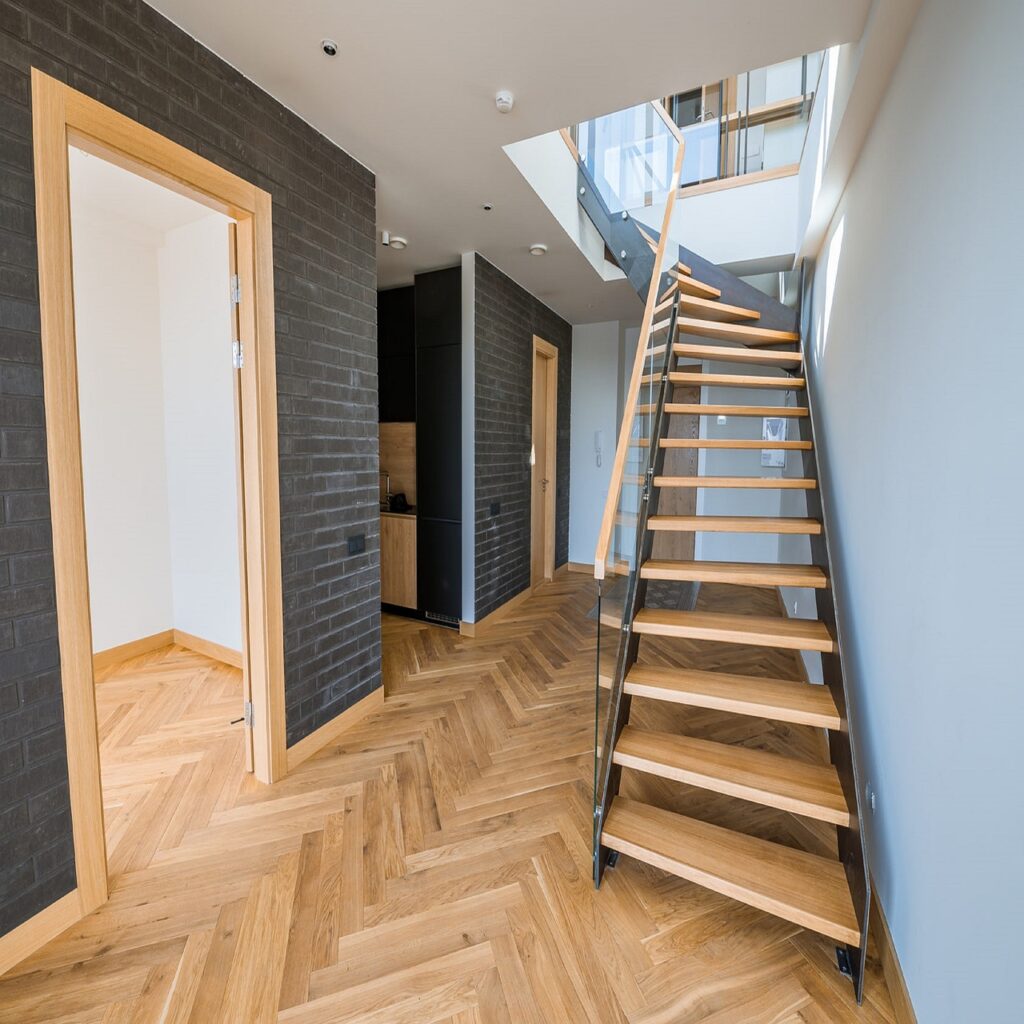When it comes to flooring, homeowners often seek a balance between beauty, durability, and affordability. Engineered hardwood flooring has emerged as a popular option that delivers the elegance of traditional hardwood while offering practical benefits. But what makes engineered hardwood stand out, and why might it be the perfect fit for your home? Let’s explore the advantages and considerations of choosing this versatile flooring option.
What is Engineered Hardwood?
Engineered hardwood is crafted from multiple layers of wood, topped with a solid hardwood veneer. The underlying layers, often made of high-quality plywood or fiberboard, are cross-laminated to create a strong, stable core. This construction method makes engineered hardwood more resilient to environmental changes than traditional solid wood, while still delivering the natural beauty of real hardwood.
Benefits of Engineered Hardwood Flooring
- Timeless Aesthetic
The top layer of engineered hardwood is real wood, offering the same warmth, character, and variety of finishes as solid hardwood.
Available in a wide range of species, colors, and textures, it complements any interior design style. - Superior Durability
The layered construction of engineered hardwood makes it less prone to warping, shrinking, or expanding due to humidity or temperature changes.
It’s ideal for areas where solid wood might not perform well, such as basements, kitchens, or homes in humid climates. - Easier Installation
Engineered hardwood can be installed as a floating floor, glued, or nailed, offering flexibility depending on your subfloor and installation preferences.
Many options come with click-lock systems, making DIY installation more accessible. - Cost-Effective Alternative
While engineered hardwood often costs less than solid wood, it still provides a high-end look and long lifespan, making it a great value for your investment. - Eco-Friendly Option
Engineered hardwood uses less solid wood than traditional planks, making it a more sustainable choice.
Many manufacturers source wood responsibly and use adhesives with low volatile organic compounds (VOCs) for healthier indoor air quality. - Refinishing Potential
Depending on the thickness of the top veneer, engineered hardwood can often be sanded and refinished once or twice, extending its life and allowing you to refresh its appearance.
Things to Consider
- Top Veneer Thickness
Thicker veneers allow for more refinishing but may increase the cost. Evaluate how long you plan to stay in your home to decide on the right balance. - Subfloor Requirements
While engineered hardwood works well over most subfloors, including concrete, ensure proper moisture barriers are in place for areas like basements. - Moisture Resistance, Not Waterproofing
Although more moisture-resistant than solid wood, engineered hardwood isn’t waterproof. Clean up spills promptly and avoid excessive moisture in areas like bathrooms. - Lifespan Compared to Solid Wood
While engineered hardwood can last 20–30 years or more with proper care, it may not match the 50+ years of well-maintained solid hardwood. However, its stability often outweighs this consideration for many homeowners.
Maintenance Tips
Sweep or Vacuum Regularly: Prevent dirt and grit from scratching the surface.
Use Damp Mopping Sparingly: Avoid soaking the floor, and use a cleaner designed for hardwood.
Add Rugs and Pads: Protect high-traffic areas and furniture feet to maintain the finish.
Where Engineered Hardwood Shines
Engineered hardwood flooring is a great choice for:
Basements and Lower Levels: Its stability under changing conditions makes it ideal for below-grade installations.
Open Concept Homes: The consistent, sleek appearance ties rooms together beautifully.
Modern Renovations: Quick installation options like floating floors can save time during remodels.
Conclusion
Engineered hardwood flooring offers the perfect blend of beauty, durability, and practicality. It allows you to enjoy the natural elegance of wood while accommodating the demands of modern living. Whether you’re looking to enhance your home’s value, create a cohesive aesthetic, or install flooring in areas where solid hardwood falls short, engineered hardwood is a versatile solution worth considering. With proper care and thoughtful selection, engineered hardwood flooring can provide decades of style and performance, making it a smart investment for your home.


